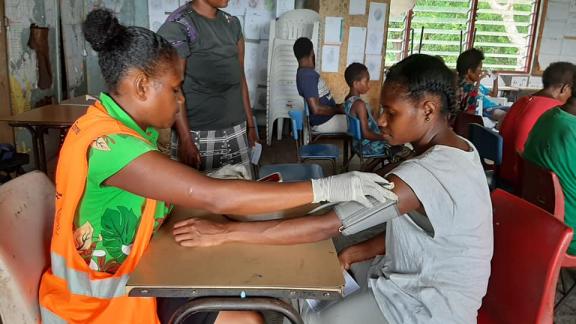
A recent panel discussion at the University of Malaya, Kuala Lumpur, titled “A Gender Progressive Approach to Understanding the Fallacies of Performative Media Activism,” brought together prominent voices in media and gender advocacy.
Organised by the postgraduate students of the Gender Studies Programme, the event featured Malarvili Meganathan, Regional Communications, Voice, and Media Advisor at IPPF ESEAOR; Abinaya Dhivya Mohan, Advocacy Director at Women’s Aid Organisation; Sabrina Aripen, PhD student and founder of the Society for Equality, Respect, and Trust for All (SERATA); and songwriter Takahara Suiko.
The discussion explored performative activism in the media and feminist movements. Panellists addressed the challenges of media inclusivity and representation, examining the role of privilege in shaping these discussions.
Gender-Progressive Media
The discussion emphasised the need for gender-progressive media to go beyond performative gestures, advocating for inclusive and meaningful representation of all genders in authentic ways that contribute to substantive cultural shifts.
Currently, gender representation in media is skewed towards men and prominently features gender stereotypes. Globally, women comprise only 24% of the people who have heard, read about, or seen in newspapers, television, and radio news. Over 46% of news stories reinforce gender stereotypes, while only 4% of stories challenge them despite an increase in coverage over the past five years.
Underrepresentation varies significantly in local contexts, affecting LGBTQIA+ individuals, women of colour, Indigenous women, migrants, and refugees. In the Asia Pacific region, gender inequality and power imbalances persist, limiting women’s agency to exercise choice.
Activism and Media Literacy
The panel also discussed effective activism strategies for engaging and mobilising diverse audiences to foster allyship and collective action. Media literacy was highlighted as a crucial tool in empowering audiences to analyse representations of gender and race in the media critically. Solution journalism was emphasised to address challenges alongside evidence-based responses. This approach reimagines focus, frame, and narrative, contributing to a more inclusive and equitable media landscape.
According to the latest Journalism, media, and technology trends for 2024 by the Reuters Institute for the Study of Journalism, publishers prioritise more precise explanations of complex stories, solutions-oriented storytelling, and inspirational stories to counter news avoidance and fatigue and maintain interest.
Perspectives on Media Representation and Gender Justice

Dr Rusaslina Idrus, Senior Lecturer at the Department of Gender Studies, Faculty of Arts and Social Sciences, University of Malaya: "It is crucial for young women to see themselves represented in the media. Diversity is vital. We must create spaces for marginalised communities and platform activists and address economic barriers affecting Indigenous communities. This includes tailoring messaging to be culturally relevant, particularly in areas like reproductive health and rights, by collaborating closely with community leaders.

Abinaya Dhivya Mohan, Advocacy Director, Women’s Aid Organisation: "To promote gender justice, it's essential to tell the stories of survivors in a dignified, rights-based manner and make media more accessible to people with disability. Gender-progressive media should prioritise these aspects. Media organisations should hire more women in decision-making positions and institute policies that protect women from harassment and violence.”

Lauren Brodie Tsen, Research Assistant, Postgraduate student, Department of Gender Studies, Faculty of Arts and Social Sciences, University of Malaya:
"In Nabawan, one of the poorest districts in Malaysia, pregnant women struggle to access life-saving services due to inadequate infrastructure. Media activism must address the rights and needs of those on the fringes, particularly women and girls deprived of essential healthcare services and protection against sexual and gender-based violence.”
Moderated by Nadirah Babji, Senior Humanitarian Program Officer at IPPF ESEAOR, the event concluded with valuable insights into gender-progressive media practices. The discussion emphasised moving beyond performative activism, ensuring meaningful representation and leadership from communities on the ground, and the need for coherent policies at all levels, starting with national media policies.

when









